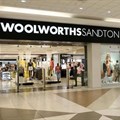
Subscribe & Follow
#AfricaMonth
Jobs
- Sales Consultant Hazyview
- Field Agent Nelspruit
- Store Manager East London
- Regional on Premise Manager East London
- Sales and Brand Excutive Cape Town
- Store Manager Roodepoort
- Store Managers and Assistant Store Managers Pretoria
- Assistant Store Managers and Supervisors Johannesburg
- Store Manager East London
- Direct Sales Person Nelspruit
In the news
What's behind the rise in general dealer retail sales?

Their strong performance in a struggling retail sector can be largely attributed to consumers’ spending more of their income on necessities and choosing entry-level and in-house brands over premium brands.
That’s according to new research conducted by the Bureau of Market Research (BMR) on behalf of Capital Connect, part of the Connect Group. The research shows that real retail sales in the general dealer sub-sector (with inflation taken into account) grew a meagre 3.7% for the year May 2021 to May 2022. Other sectors have had an even tougher year.
Over this period, retailers of food, beverages and tobacco in specialised stores saw sales decline 5.6%, while retailers in pharmaceutical and medical goods, cosmetics and toiletries saw sales dip by 0.3% in real terms. Retailers in textiles, clothing, footwear and leather goods experienced a decline of 4%, retailers in household furniture, appliances and equipment were down 0.3%, and retailers in hardware, paint and glass fell 6.8% in real terms.
Shoppers scaling down
Says Professor Carel van Aardt, research director at the BMR: “With inflation at 13-year highs, the Reserve Bank hiking interest rates by 0.75 basis points, low economic growth and high joblessness, the consumer is under enormous pressure. This, in turn, puts retailers under pressure, with consumers needing to allocate most of their monthly income to the bare necessities.”
According to the BMR’s models, half of South Africa’s adult population has a low consumption capacity and potential. This means they live at or below the poverty line and have few prospects to get formal employment that enables them to improve their conditions. Retailers need to be inventive to accommodate these customers while maximising share of wallet from the small segment that has money for discretionary spending.
Retailers feel the pinch too
“When consumers feel the pinch, retailers feel it, too. Weak retail sales are seeing some stores close down or scale back operations,” says Steven Heilbron, CEO of Capital Connect. “Retailers face the competing imperatives of growing their businesses and keeping their costs as low as possible. Yet it’s also encouraging to see how retailers are innovating and diversifying in the face of a challenging operating environment.”
Capital Connect suggests retailers tap into quick-access business funding to equip themselves with the following:
• Stocking up on new low-cost ranges and brands to cater to struggling consumers who are buying or scaling down.
• Bulk-buying products to negotiate better prices and increase profit margins. This enables retailers to run promotions on certain products or offer products at special prices, in turn attracting more customers and increasing wallet share.
• Investing in delivery and logistics to offer convenient deliveries at a lower cost to both the retailer and their customers than online platforms or third-party logistics.
• Investing in batteries, solar or generators so as not to lose sales during load shedding.
Related
Lesaka fintech solutions win big at Absa Commercial Payments Awards 2025 5 May 2025 Black Friday and festive season sales forecast to rise 6.5% in 2024 11 Dec 2024 Black Friday acts as a launchpad for festive season sales success 19 Nov 2024 Black Friday 2024 might be the economic boost SA needs 24 Oct 2024 How retailers can prepare for the R100bn e-commerce market 30 Aug 2024 Trends retailers should consider to stay relevant to Gen Z consumers 28 Aug 2024














